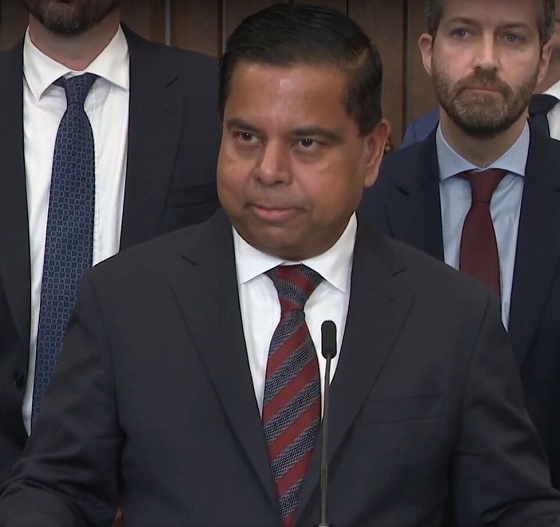Great Reset
Canadian assisted suicide data suggests over 15,000 chose euthanasia last year

From LifeSiteNews
With a slightly higher population than Canada, the state of California also legalized euthanasia in 2016. From 2016 to the beginning of 2023, 3,349 Californians ended their life by euthanasia. In that same time span 44,958 Canadians died by euthanasia.
As we await the federal government’s release of Canada’s 2023 euthanasia data, last week British Columbia released it’s 2023 provincial euthanasia data.
According to the BC Medical Assistance in Dying 2023 report there were 2,767 reported assisted deaths, up by 10 percent from 2,515 in 2022.
It is concerning that “other conditions” represented 32.9 percent of the BC assisted deaths in 2023. Other conditions were reported under these categories:
Autoimmune Condition 2.4%, Chronic Pain 24.8%, Diabetes 9.8%, Frailty 60.5%, Other Comorbidities* 52.1%.
READ: Canadian hospice society provides ‘Guardian Angels’ to protect patients from euthanasia
Canada’s MAiD law does not require that a person be terminally ill. Diabetes, frailty, chronic pain, and autoimmune conditions are usually chronic and not terminal conditions.
The report does not indicate the conditions that comprise “Other Comorbidities” yet the report indicates that mental disorders, as a comorbidity, is within that category.
Euthanasia for mental disorders alone is not permitted in Canada but if a person has a mental disorder and another comorbidity (condition) then the person can qualify to be killed by MAiD.
The report excludes any important information, such as an analysis of questionable deaths or a further examination of why a person actually asked to be killed, rather it only includes their condition.
Canada’s euthanasia statistics
On February 6, 2024 I predicted that there were approximately 16,000 Canadian euthanasia deaths in 2023. At that time I had less data.
Based on the data from Ontario, Quebec, British Columbia, Manitoba, Alberta, and Nova Scotia, I now predict that there were approximately 15,280 Canadian euthanasia deaths in 2023. Here is how I came to that prediction:
%2002.jpg?resize=432%2C360&ssl=1)
CBC Radio Canada published an article on March 9, 2024, stating that there was a 17 percent increase in Québec euthanasia deaths with 5,686 reported deaths representing 7.3 percent of all deaths, which is the highest rate in the world in 2023. The Radio Canada report was based on the Quebec euthanasia deaths between January 1 and December 31, 2023.
The Office of the Chief Coroner of Ontario released the December 2023 MAiD data indicating that there were 4,641 reported euthanasia deaths in 2023, which was up by 18 percent from 3,934 reported euthanasia deaths in 2022.
Alberta Health Services reports that there were 977 reported assisted suicide deaths in 2023, which was up by more than 18 percent from 836 reported assisted deaths in 2022.
The Nova Scotia Medical Assistance in Dying data indicates that there were 342 reported assisted deaths in 2023, which was up by more than 25 percent from 272 in 2022.
READ: Dame Cicely Saunders began the great work of modern palliative care. Let’s continue it
An article published by Global news, which may only be preliminary data, indicated that there were 236 reported Manitoba assisted deaths in 2023, which was up by 6 percent from 223 in 2022.
The BC Medical Assistance in Dying 2023 report stated that there were 2,767 reported assisted deaths, up 10 percent from 2,515 in 2022.
According to the data from Ontario, Québec, Alberta, Nova Scotia, Manitoba, and British Columbia, there were 14,413 assisted deaths in 2023 (in those provinces) which is up by 15.4 percent from 12,490 assisted deaths in 2022 (in those provinces). Since the total number of Canadian assisted deaths in 2022 was 13,241, I can predict that there were approximately 15,280 Canadian assisted deaths in 2023.
Reprinted with permission from the Euthanasia Prevention Coalition.
Business
Justice Centre launches new petition: Keep cash legal and accessible. Stop Bill C-2

Public Safety Minister Gary Anandasangaree speaks to Bill C-2 (Screenshot from CBC video)
The Justice Centre for Constitutional Freedoms has launched a petition calling upon the Prime Minister of Canada to strike the criminalization of cash payments of $10,000 or more from Bill C-2 and to introduce legislation protecting the right of Canadians to use cash of any amount for legal transactions.
Public Safety Minister Gary Anandasangaree introduced Bill C-2, or the Strong Borders Act, in the House of Commons on June 3, 2025. According to a Government of Canada statement, Bill C-2 will equip law enforcement with tools to secure borders and to combat crime, the drug trade, and money laundering.
Buried deep within the Bill, however, are provisions that would make it a criminal offence for businesses, professionals, and charities to accept cash payments of $10,000 or more in a single transaction or in a series of related transactions.

Bill C-2 at page 59
Justice Centre President John Carpay warns that the criminalization of cash transactions threatens the privacy, freedom of expression, and autonomy of all Canadians. When cash transactions are criminalized, governments, banks, and law enforcement can track and interfere with legitimate purchases and donations.
“We must not criminalize everyday Canadians for using physical currency. Once $10,000 is criminalized, it will be all too easy for future governments to lower the threshold to $5,000, then $1,000, and eventually nothing.”
Bill C-2 is just one point in a concerning anti-cash trend in Canada.
Quebec’s controversial Bill 54, passed into law in March 2024, allows police to assume that any person carrying $2,000 or more in cash is connected to criminal activity. Officers can seize the cash, and citizens must prove their innocence to get the cash back.
“Restricting the use of cash is a dangerous step towards tyranny,” continued Mr. Carpay. “Cash protects citizens from surveillance by government and banks, credit card companies, and other corporations. In a free society, violating the right of law-abiding citizens to use cash is not the answer to money laundering or the drug trade.”
Signers of the petition call upon the Prime Minister of Canada to strike the criminalization of cash payments from Bill C-2.
Signers of the petition also call upon the Prime Minister of Canada to introduce legislation that protects Canadians’ right to use cash of any amount for legal transactions.
Business
Telegram founder Pavel Durov exposes crackdown on digital privacy in Tucker Carlson interview

From LifeSiteNews
By Robert Jones
Durov, who was detained in France in 2024, believes governments are seeking to dismantle personal freedoms.
Tucker Carlson has interviewed Telegram founder Pavel Durov, who remains under judicial restrictions in France nearly a year after a surprise arrest left him in solitary confinement for four days — without contact with his family, legal clarity, or access to his phone.
Durov, a Russian-born tech executive now based in Dubai, had arrived in Paris for a short tourist visit. Upon landing, he was arrested and accused of complicity in crimes committed by Telegram users — despite no evidence of personal wrongdoing and no prior contact from French authorities on the matter.
In the interview, Durov said Telegram has always complied with valid legal requests for IP addresses and other data, but that France never submitted any such requests — unlike other EU states.
Telegram has surpassed a billion users and over $500 million in profit without selling user data, and has notably refused to create government “backdoors” to its encryption. That refusal, Durov believes, may have triggered the incident.
READ: Arrest of Telegram founder Pavel Durov signals an increasing threat to digital freedom
French prosecutors issued public statements, an unusual move, at the time of his arrest, fueling speculation that the move was meant to send a message.
At present, Durov remains under “judicial supervision,” which limits his movement and business operations.
Carlson noted the irony of Durov’s situating by calling to mind that he was not arrested by Russian President Vladimir Putin but rather a Western democracy.
Former President of Russia Dmitry Medvedev has said that Durov should have stayed in Russia, and that he was mistaken in thinking that he would not have to cooperate with foreign security services.
Durov told Carlson that mandates for encryption “backdoors” endanger all users, not just suspects. Once created, such tools inevitably become accessible to hackers, foreign agents, and hostile regimes.
“In the US,” he commented, “you have a process that allows the government to actually force any engineer in any tech company to implement a backdoor and not tell anyone about it.”
READ: Does anyone believe Emmanuel Macron’s claim that Pavel Durov’s arrest was not political?
Durov also pointed to a recent French bill — which was ultimately defeated in the National Assembly — that would have required platforms to break encryptions on demand. A similar EU proposal is now under discussion, he noted.
Despite the persecution, Durov remains committed to Telegram’s model. “We monetize in ways that are consistent with our values,” he told Carlson. “We monetized without violating privacy.”
There is no clear timeline for a resolution of Durov’s case, which has raised serious questions about digital privacy, online freedom, and the limits of compliance for tech companies in the 21st century.
-

 Health1 day ago
Health1 day agoLast day and last chance to win this dream home! Support the 2025 Red Deer Hospital Lottery before midnight!
-

 Business2 days ago
Business2 days agoCarney’s European pivot could quietly reshape Canada’s sovereignty
-

 Aristotle Foundation1 day ago
Aristotle Foundation1 day agoThe Canadian Medical Association’s inexplicable stance on pediatric gender medicine
-

 Alberta2 days ago
Alberta2 days agoAlberta’s grand bargain with Canada includes a new pipeline to Prince Rupert
-

 conflict1 day ago
conflict1 day ago“Evacuate”: Netanyahu Warns Tehran as Israel Expands Strikes on Iran’s Military Command
-

 Bruce Dowbiggin1 day ago
Bruce Dowbiggin1 day agoWOKE NBA Stars Seems Natural For CDN Advertisers. Why Won’t They Bite?
-

 Energy1 day ago
Energy1 day agoCould the G7 Summit in Alberta be a historic moment for Canadian energy?
-

 Crime1 day ago
Crime1 day agoMinnesota shooter arrested after 48-hour manhunt






